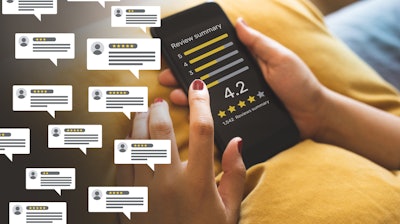
Most of the business apps you utilize are part of a larger category called software as a service (SaaS). SaaS is a software model that allows customers to access it online. This service is usually a subscription model and does not require users to install it, but only to sign up for it.
“SaaS, software as a service, emanating from the cloud infrastructure, that's really servers everywhere else. One more term that you're going to hear from us is business apps,” says Bill Furlong, CEO and founder of SquareStack. “Business apps is shorthand for business applications. When you hear us or any other voice in the marketplace talk about business apps, it means software as a service.”
Then you hear words like the cloud, and the cloud refers to, at its most generic level, the technology revolution. However, most experts agree that a more accurate definition for the cloud is the location where (your) data is stored on remote servers accessed from the internet. It’s maintained, operated, and managed by a cloud storage service provider on a storage server that then connects to that very same internet (at higher and higher speeds) to and from your electronic devices.
“Many other businesses, companies, individuals can now access software without actually upgrading servers, investments in hardware,” Furlong says. “So, the cloud really doesn't mean there isn't a server, it's just that they're maintained elsewhere by other software makers, and companies like Google and other big companies. Quite frankly, because of all the investments made by venture capitalists and entrepreneurs, software is much, much easier to use.”
However, SaaS is becoming the universal platform for all work in our society. First, the cloud allows for speed and bandwidth that’s accessible and affordable to any size company. All of these advances have made it much easier for vendors to enable their solutions and manage their own infrastructure. On the other side of that coin, this allows you to connect efficiently to those vendors, thus permitting them to scale their own technology enterprise economically.
Any time you invest money in your business, you had better see some comparable ROI. With software it’s no different.
“I would say is that SaaS, puts you in more control of your business,” Furlong says. “Because now, you could actually save time by executing all these operational administrative duties via your laptop, desktop, or smartphone, which allows you to go out and monetize debt by freeing up time.”
Intuit shared some recent research on just what motivates small business owners to buy software and realize satisfaction. What motivates small business owners to buy software and realize satisfaction? Here are the top attributes that others have looked for in a business app:
- 40% Helps them stay organized by better managing the back office
- 33% Helps them maintain good relationships with customers
- 31% Works seamlessly with other software solutions they’re using
- 31% Tailor-made for their type of business
- 24% Helps generate sales leads and win new business
- 14% Provides deep insights into their business performance 8
“We deliver customer service on behalf of GreenApps. When someone signs up at $10 a month, they have a one-year contract after a free trial, and we're hosting all the activities and make it really simple for that landscape business to manage all their software in one place,” he says.
Business process as a service (BPaaS) is a term for a specific kind of web-delivered or cloud hosting service that benefits an enterprise by assisting with business objectives. In the general sense, a business process is simply a task that must be completed to benefit business operations.
“So that software, there's tools like Early Reviewer, Topline Reviews. There's a variety of different software tools that allow you to manage all your online reviews,” say Furlong. “So, there's just one small case of the only way you're going to be able to manage your reputation amongst your customers who are mostly online, is to actually use the software to manage those reviews.”
309% increase in cash flow due to cloud tech adoption according to the Microsoft Survey with Thought Arbitrage Research Institute 2018.
“So, accounting, you're likely using QuickBooks, or NetSuite to kick the tires a little further on those tools. Devote a half hour a day or a couple hours a week to really dive into those software tools you already have, and understand some of the internal filters, or tools that you are not using.
Software to maybe invest in:
- Google G Suite
- Intuit/QuickBooks
“Automating things will give you more time to make more money, but there's the commitment one must make to engage in software,” Furlong says.



















